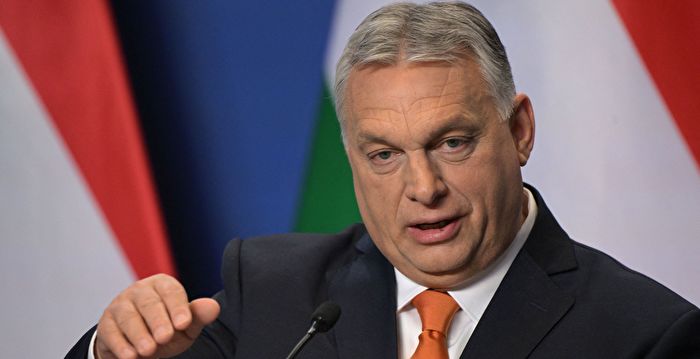[Epoch Times, April 6, 2022](The Epoch Times reporter Li Yan comprehensive report) Hungary said on Wednesday (April 6) that it was ready to pay rubles for Russian gas. This goes against the EU’s approach. The European Union has been seeking a united front to boycott it as Moscow demands rubles to buy its gas.
Hungary will pay in rubles to buy its gas if Russia asks Hungary to pay in rubles, Prime Minister Viktor Orban said in response to questions from Reuters at a news conference on Wednesday.
Russia waged war on Ukraine and was subjected to round after round of Western sanctions for it. In response, Russian President Vladimir Putin warned Europe that unless it paid in rubles, it risked gas cuts.
The European Commission said that if a European country signed a contract with a Russian supplier that required payment in euros or dollars, it should stick to the contract.
A bilateral contract for gas supply was signed between Hungary’s state-owned MVM and Gazprom. Hungarian Foreign Minister Peter Szijjarto said earlier that EU authorities cannot intervene in gas supply deals between Hungary and Russia.
A European Commission spokesman said the commission would not comment on national authorities’ claims.
Hungary is one of the few EU member states to reject energy sanctions on Moscow. Putin said he was conducting a “special military operation” in Ukraine, which Western countries called an invasion.
Orban’s government has had close business ties with Moscow for more than a decade. He won a fourth term in elections on Sunday (April 3), in part on his promise to supply Hungarian households with safe and reliable natural gas.
European countries react
On average, European countries rely on Russia for more than one-third of their natural gas. European governments are discussing the issue with their own energy companies, as Putin’s rouble payment demands come as a backlash.
On Monday, Slovakia said it would act in unison with the European Union, while Poland’s dominant gas company PGNiG insisted that the original contract with Gazprom expires at the end of this year and is binding on both parties until then.
A spokesman for Austria’s OMV said on Friday (April 1) that preliminary contacts had been made with Gazprom about paying for gas in rubles. However, the Vienna government said there was no reason to pay in any currency other than euros or dollars.
The Ukrainian foreign minister has insisted an embargo on Russian gas and oil is needed as the war continues, but the EU has so far refrained from acting, instead proposing a ban on imports of Russian coal and other products.
European buyers are ramping up coal imports from around the world, according to data and shipping sources, amid a proposed EU ban on imports from Russia and a scramble to ease tight gas supplies.
Hungarian Foreign Minister Sijarto believes that the European Commission does not need to expect “there should be some kind of common reaction among countries importing Russian gas.” He added that countries have signed their respective bilateral contracts.
“And … no one has a say in how we modify our own contracts.”
Hungary is heavily dependent on Russian gas and oil imports. Gazprom is expected to supply Hungary with 4.5 billion cubic meters of natural gas a year under a new long-term gas supply agreement signed last year by Hungary and Russia.
Meanwhile, Putin discussed with Serbian President Aleksandar Vucic the expansion of Moscow’s economic cooperation with Belgrade, including in the energy sector.
Serbia’s Russian gas contract expires on May 31. “Negotiations on a new contract need to start as soon as possible,” said a statement from Vucic’s office.
Latvia’s largest gas trader said it was considering whether it should pay for Russian gas in euros or rubles. Gazprom owns a third of the company’s shares. But a Latvian foreign ministry spokesman said, “Latvia does not support payments in rubles, and the EU must have a common approach.”
Lithuania has said it will no longer import Russian gas to meet its domestic demand, becoming the first country in Europe to ensure independence from Russian supplies.
On Wednesday, Russian gas was steadily flowing to Europe through three key pipeline routes.
Responsible editor: Li Yuan#
